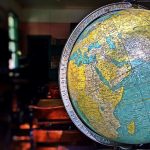Belgium – Politics
Belgium became independent in 1830. Between 1970 and 1993, the country evolved into a more efficient federal structure. This occurred through six state reforms (in 1970, 1980, 1988-89, 1993, 2001 and 2012-2014). As a result, the first Article of the Belgian constitution reads today: ‘Belgium is a federal state, composed of communities and regions’.
The power to make decisions is no longer the exclusive preserve of the federal government and the federal parliament. The leadership of the country is now in the hands of various partners, who independently exercise their authority within their domains.
The communities
The redistribution of power occurred along two lines. The first line relates to language and, in a broader sense, to everything related to culture. The result was several communities. The concept of ‘community’ refers to persons that make up a community and the bond that unifies them, namely their language and culture. Belgium sits across the fault line that separates German and Latin cultures. This explains why the country has three official languages: Dutch, French and German. As a result, Belgium today, has three communities: the Flemish Community, the French Community and the German-speaking Community. These communities therefore correspond with the population groups.
The regions
The second line of state reform was historically inspired by economic interests. The regions, which aspired to more economic autonomy, conveyed these interests. The establishment of the three regions was the result: the Flemish Region, the Brussels Capital Region and the Walloon Region. Up to a certain level they can be compared with the American states or the German ‘Länder’.
The country is further divided into 10 provinces and 581 municipal councils.
The Federal State
The Federal State nevertheless retains important powers, for example in the area of foreign affairs, national defence, justice, finance, social security, important parts of national health and domestic affairs… However, the communities and the regions also have the power to establish and maintain foreign relations.
This text and overview is presented on the following website: https://www.belgium.be/en/about_belgium/government/federale_staat




